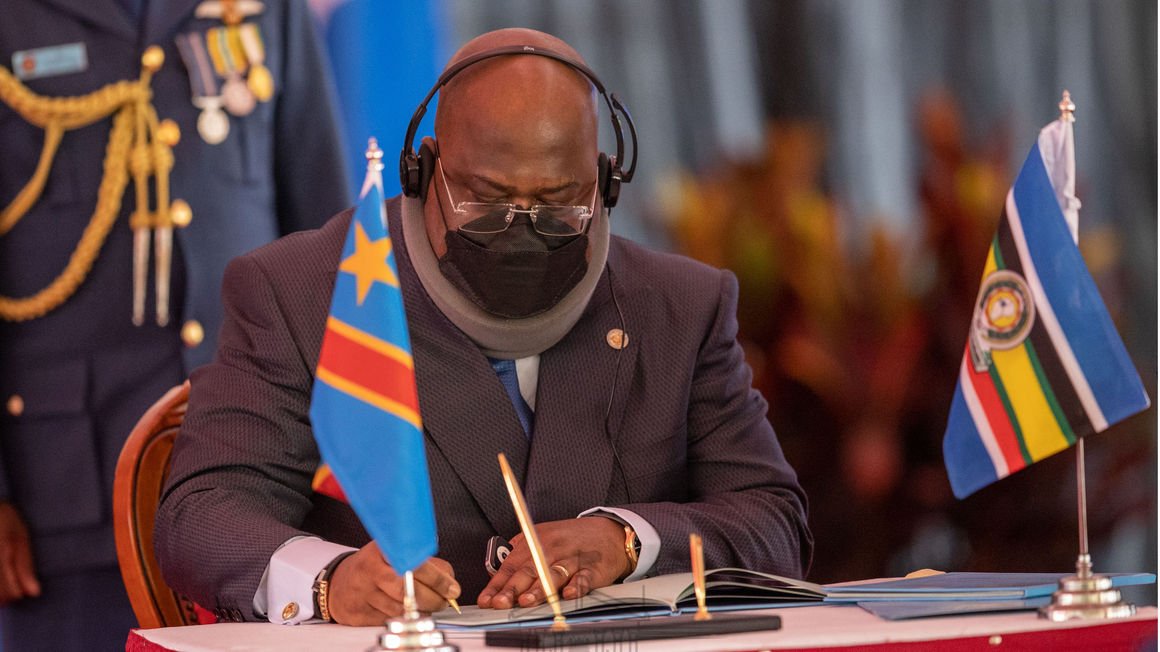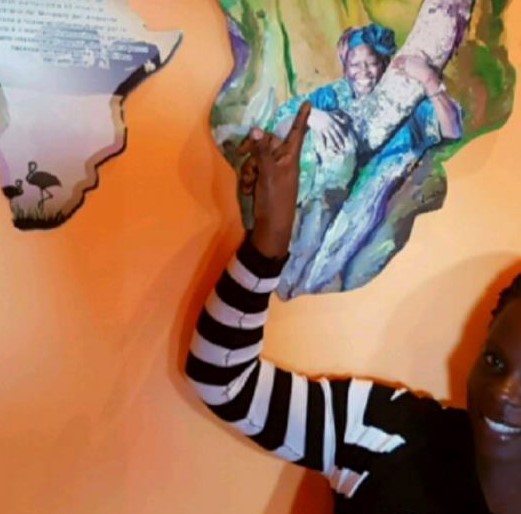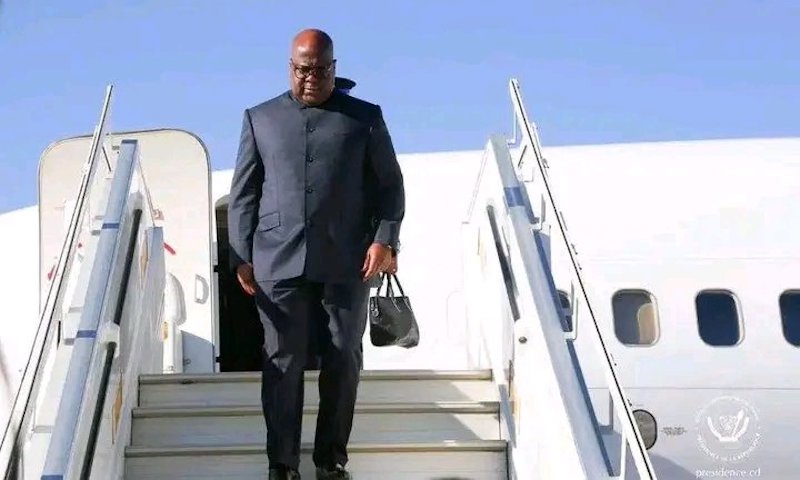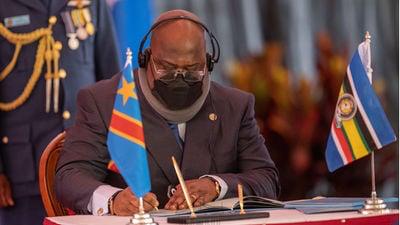Regional
DRC could be expelled from EAC over non-compliance

Congolese President Felix Tshisekedi signs the deed of Accession to the Treaty establishing the EAC at a ceremony held at State House Nairobi, on April 8, 2022.
In June 2019, Congolese
President Felix Tshisekedi expressed his country’s desire to join the East
African Community (EAC) and made a formal request through President Paul Kagame
of Rwanda, then chairman of the EAC.
In March 2022, the Democratic
Republic of Congo (DRC) was formally admitted into the regional bloc, becoming
the seventh member after Uganda, Kenya, Tanzania, Rwanda Burundi and South
Sudan.
Each member state is expected
to make a financial contribution for the bloc's annual budget. The money forms
the budget to run the activities of the EAC.
Since joining the bloc, DRC
has never contributed a single coin and by the time of writing this article,
DRC is the most highly indebted country with arrears amounting to $14.7million,
followed by Burundi at $11.2million.
Somalia, the newest EAC baby, has cleared and owes nothing to the bloc.
With a current budget of $112,
984,442, in the 2024/2025 financial year, the EAC relies more on contributions
from partner states which comprises 61 per cent of the total budget while 39
per cent is sourced from development partners.
The failure by member states
to make their contributions cripples EAC activities. This puts DRC authorities
on the spot light for hampering the smooth functioning of the EAC.
Reliable sources close to
decision makers within the EAC secretariat, confided to the Great Lakes Eye,
that there have been closed door consultations regarding DRC's intentions to join
the bloc yet fail to abide by membership rules and ideals.
Some suggested that instead of
causing disharmony, the country should be expelled from the bloc.
Since its admission into the
EAC, there has been no ministerial representative of DRC within the East
African Legislative Assembly (EALA) for the last two years.
It is only in June that DRC
authorities sent Francophone and Regional Integration Minister Didier Mazenga
to the Assembly. He was sworn as an ex-officiao member on June 28, at the EAC headquarters,
in Arusha, Tanzania.
Political analysts believe
that Kinshasa acted hurriedly to send its envoy after getting wind of possible
expulsion for non-compliance with the operating procedures of EAC.
Hours before Mazenga was sworn
in, he paid a courtesy call to EALA Speaker Joseph Ntakirutimana and assured
him that his country was planning to make good the arreas it owed EAC. On the
same day, EALA members had a heated debate over the non-remittance of
contributions by member states, chief among them being the DRC. EALA MPs
propose to impose a penalty of suspension of their counterparts from countries
that had failed to send their remittances to the EAC.
The DRC rarely takes part in
EAC meetings. Notable among such absenteeism is during the EAC 23rd
Extraordinary Summit of Heads of State held on June 7 to appoint new EAC
Secretary General Veronica Mueni Nduva.
Tshisekedi did not attend the
virtual meeting and nor did he send a representative. The fact that Tshisekedi
did not even bother to offer an apology was interpreted as lack of interest in
EAC affairs and probably even undermining the bloc’s desired objectives.
After DRC joined the EAC, a
summit of Heads of State held in Nairobi Kenya in June 2022, agreed to send a
regional force (EACRF) to help quell the war between the DRC government and M23
rebels in eastern DRC. Although the
force was credited for bringing relative calm in eastern DRC, Tshisekedi sent
the force packing in December 2023, claiming that the force had failed its
mission.
However, the point of
departure was that Tshisekedi had anticipated that EACRF would help his weak
army to fight the M23 rebels who had captured the strategic border town of
Bunagana and were advancing. The spirit of EAC leaders when agreeing to deploy
EACRF was to stop the fighting to enable
political dialogue between the two sides.
As Tshisekedi sent EACRF out
of eastern DRC, he called in SADC countries to send troops to help him fight
M23 rebels. SADC forces came in, led by South African Defence Forces (SANDF).
Not so surprisingly, the SADC mission was quickly joined by the Burundian army
- Burundi is not a member of the southern African regional bloc but it has a
suspect bilateral pact with Kinshasa - European mercenaries, a Rwandan
genocidal militia known as FDLR, a government supported local militia called
Wazalendo, and others, in fighting M23. Unfortunately, the DRC army and its
collation continue to suffer defeat and are losing more territory to the M23
rebels.
Tshisekedi refused to listen
to his peers who advised and warned that the solution to the eastern DRC crisis
cannot be through military means but a political process because the root
causes of the crisis are political in nature.
By running to SADC, after his
defiance to EAC leaders’ advice, Tshisekedi showed less trust in EAC. His
actions somehow caused an uncomfortable relationship between the two blocs.
Tshisekedi’s joining EAC must have been genuine hoping to contribute to the growth of EAC. But along the way, he developed cold feet, which is likely to lead to expulsion of his country being a reluctant member. There is also an option of voluntary withdraw to save the embarrassment of expulsion.




